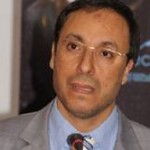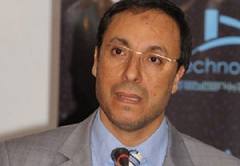Courant.com | Daniel Bases
 NEW YORK (Reuters) – Morocco presented its case late on Monday for U.S. businesses to consider investing in the stable North Africannation but is frustrated to be lumped together with some radical Islamists found in the region.
NEW YORK (Reuters) – Morocco presented its case late on Monday for U.S. businesses to consider investing in the stable North Africannation but is frustrated to be lumped together with some radical Islamists found in the region.
In a private dinner meeting with top executives and financiers, Moroccan Minister of Trade, Industry and New Technologies, Abdelkader Amara highlighted its geography as an asset for businesses seeking a stepping stone to Africa as well as a lower cost manufacturing base with close proximity to Europe.
Amara said Morocco feels tainted by its neighborhood where the recent outrage and violence over a crude film ridiculing the Prophet Mohammad led to a militant attack in Libya to its East that killed the U.S. ambassador and three others.
Sign Up For Traffic Text Alerts
“First of all Morocco is a part of this Arab and Muslim world, so we share many many things. We share values, we share religion, we share language. But we don’t want others, especially the Western countries to put Morocco in the same basket as the other countries,” Amara told Reuters after the dinner.
“I think there is collateral damage… because they put us in the same basket. Some western countries and I’m not talking about politics, but there is the general perception when they talk about Islamists,” he said.
Morocco has a respected monarchy, with King Mohammed held by Moroccans to be a descendant of the Prophet Mohammad. It avoided much of the revolutions that swept through its North African neighbors.
Still, Moroccan authorities, under pressure from the “Arab Spring” upheavals elsewhere in the region, held early elections last year which for the first time handed power to the opposition PJD party of moderate Islamists.
The new constitution grants the government explicit executive powers and links accountability to the exercise of public office for the first time.
DEVELOPING TRADE
Amara, who is in New York for the United Nations General Assembly meeting, said the country needs better and deeper engagement with nations such as the United States.
He expressed dismay that while Morocco has excellent and deep political ties with its old ally, this has not been fully exploited on an economic level.
Morocco was the first nation to recognize the fledgling United States in 1777, just a year after it declared its independence from Great Britain. It signed a free trade agreement in June 2004 that has been in effect since 2006.
“A part of this problem lies with us. We should have a real comprehension of the U.S. It is big and has a lot of states and also many of those states don’t realize we have a free trade agreement,” Amara said.
Amara said the country suffers from its own handicaps such as antiquated administration and procedures that are in need of an upgrade. It also needs to developed more qualified workers, which means more and better education.
Asked what he would like to accomplish within the next 12 months, Amara said developing a detailed roadmap for discovering what America has and finding a strategic fit for Morocco.
The North African nation saw economic growth ease to 2.6 percent in the second quarter of 2012 from 2.8 percent the previous quarter on both slackening agriculture output and domestic demand in the $90 billion economy.
In 2011 Morocco’s trade with the United States consisted of $3 billion worth of imports but exports of $800 million, a government official traveling with Amara said.
Morocco produces autos, aerospace components, textiles and generic drugs, but is also investing in solar energy, for which it has an abundant supply of sunlight, with an eye toward reselling it into Europe.
The U.S. is seventh largest foreign direct investor into Morocco, according to Rabat, with former colonial overlord France in the No. 1 spot, followed by Spain, which is just 14 km across the Mediterranean Sea.
“We need to get in front of U.S. investors more,” Amara said, as well as Morocco being given “a bit more credibility.”
(Reporting By Daniel Bases)
.







